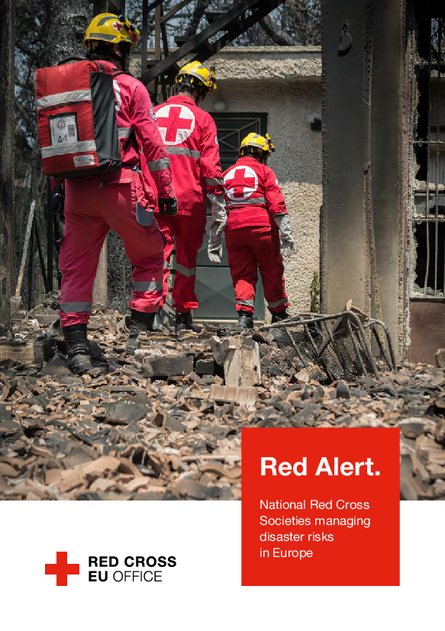
Climate change will increasingly lead to extreme weather events and natural hazards – from heavy floods to deadly heatwaves and forest fires. Disasters already impact hundreds of millions of people worldwide every year, killing tens of thousands. In the European Union (EU), this kind of emergencies cost over 90,000 lives and EUR 500 billion of economic losses between 1980 and 2017. More recently, the COVID-19 pandemic has shown the consequences of not being adequately prepared, and has provided lessons for future preparedness beyond the known and expected risks.
Across Europe, National Red Cross Societies and the International Federation of the Red Cross and Red Crescent Societies (IFRC) are stepping up efforts to manage disaster risks, rather than disasters: from awareness-raising to better preparedness, strengthened anticipation capacity and early action for more frequent, intense and catastrophic weather events, public health emergencies and other risks.
The Red Cross EU Office has developed a new publication, Red Alert, showcasing good practices, challenges and lessons learned by National Red Cross Societies in Europe and the IFRC on reducing and managing disaster risks across the region. The examples cover the importance of understanding risks and acting at local level, early warning mechanisms and anticipatory action, the combination of life-saving and awareness-raising actions to increase people’s resilience, continuous efforts to adapt, innovate and test capacities for changing hazards, and how to expand collaboration and partnerships to optimise operational reach, scale and impacts on preparedness and emergency response.
